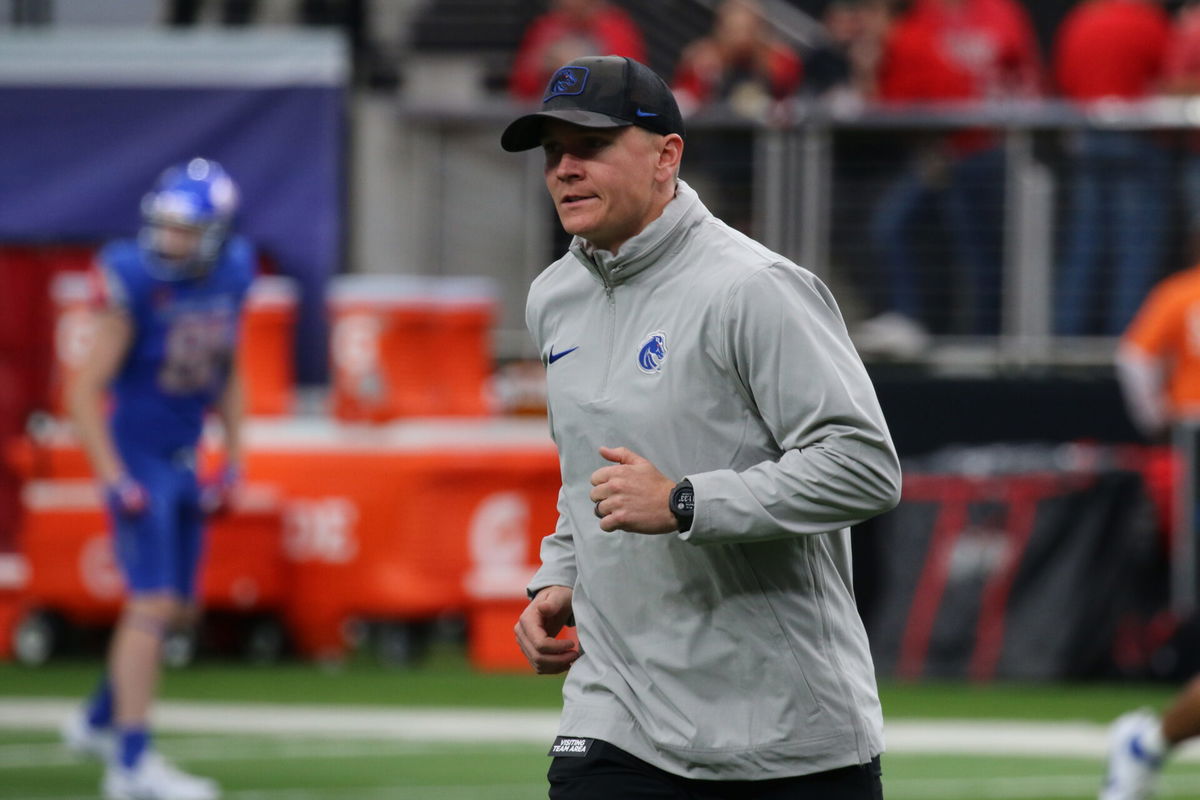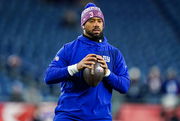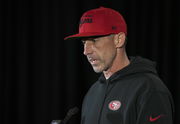

Boise State might be plotting its biggest NIL money move ever—and it has nothing to do with touchdowns or trophies. Word on the street is Spencer Danielson’s program could be next in line to dive headfirst into a groundbreaking NIL shift, right behind Penn State and UCLA. And if they pull the trigger? It’s game on. With July 1st creeping up fast and that $20.5 million revenue-sharing bomb about to drop, whispers are turning into real talks in Boise. The question now? Will the Broncos be bold enough to ride this new NIL wave—or play it safe while the powerhouses cash out?
Watch What’s Trending Now!
In this new NIL era, Elevate, a global sports and marketing agency, is seizing this opportunity by partnering with private equity firm Velocity Capital Management and the Texas Permanent School Fund Corporation. Their move? Providing schools with upfront capital and strategic resources for revenue-generating initiatives such as facility upgrades and renovations. That means Elevate is establishing itself as the link between well-funded investors and college sports programs. The best part is that teams are already joining hands with them.
On May 9th, 2025, Elevate launched a $500 million private capital fund—the College Investment Initiative—to help athletic departments adapt to changing finances. Penn State and UCLA immediately secured eight-figure deals, sources confirmed to On3. Elevate highlighted both signings in its initial rollout, signaling this isn’t just a test case—it’s the beginning of something much bigger.
ADVERTISEMENT
While Penn State and UCLA are the headline-grabbers, Elevate’s partners include powerhouses like Alabama, Notre Dame, and Florida. However, they aren’t alone. Front Office Sports hit X with the news that even Boise State is also exploring private equity investment. “Boise State is ‘actively considering’ bringing private equity investment into its athletic department, AD Jeramiah Dickey tells FOS.” This shows the growing trend of private equity in college athletics. But what appeals to Boise State?
Boise State is “actively considering” bringing private equity investment into its athletic department, AD Jeramiah Dickey tells FOS.
The Broncos expect to have a deal in place “within the next six months.”
Story by @achristovichh ⬇️
— Front Office Sports (@FOS) June 9, 2025
Jeramiah Dickey knows the challenges facing Boise State. “Ultimately, I need to create more assets for my institution and state,” he says. But with the athletic department not pulling in the kind of revenue that powerhouse programs do, he understands the stakes: “I have to get that much more creative, which means I have to take that much more risk, and appropriately so.” This creativity includes exploring private equity. Dickey confirms Boise State is actively evaluating various private equity opportunities. But Penn State and UCLA aren’t seeing this partnership as an asset.
ADVERTISEMENT
Meanwhile, speculation surrounding Penn State and UCLA’s involvement in Elevate’s College Investment Initiative caused some confusion. Elevate clarified in a statement to On3, “It isn’t announcing any clients associated with this investment initiative; those two schools are Elevate ticket operations clients.” While both schools were initially mentioned, Elevate insists their current partnerships are solely for ticketing, not investments.
Even UCLA reinforced this, emailing On3 to clarify they’re “exploring expanding its partnership with Elevate” but aren’t part of the investment initiative. Penn State’s athletic director, Pat Kraft, echoed this, stating, “Elevate serves as our partner in ticketing strategy and operations. To clarify, our relationship is strictly limited to these services, and we have no affiliation or involvement with any private equity firm or fund.” So for both UCLA and Penn State, it’s more about growth than an investment.
ADVERTISEMENT
Boise State is embracing the new NIL change
Boise State University enters a new era of college athletics following the approval of a landmark $2.8 billion antitrust settlement. This allows schools to directly compensate athletes through licensing deals. Starting July 1st, universities nationwide will pay student-athletes, revolutionizing college sports.
The settlement includes an annual salary cap, beginning at $20.5 million for the 2025-26 season and rising annually for ten years. Boise State embraces this change, proactively establishing BroncoPRO—a Professional Resources Organization—to manage NIL services and athlete revenue sharing, ensuring a smooth transition.
ADVERTISEMENT
Athletic director Jeramiah Dickey, who anticipated these changes, already highlighted Boise State’s proactive approach: “College athletics is changing, but it has been in a constant change for the better part of the last decade-plus, and we at Boise State will stay ahead of the evolution of college athletics by continuing to plan the work and work the plan,” he said back in March.
Top Stories
Caleb Williams Puts Locker Room on Notice After Rams Publicly Announce Bears QB’s Weakness

Andy Reid Gets Unfortunate Update on Chiefs’ Veteran Coach’s Retirement After Announcing Double Firing

NBC Pulls Plug on Michael Jordan Plans After Contradictions Over $40M Payday

Olympic Ice Dance Champion Gabriella Papadakis Reacts After Losing Key Role at the Milano-Cortina Games

Russell Wilson Announces New Citizenship Plans Away From America as Giants QB Makes Career Decision

“Giving People Cancer”: Ex-49ers Star Speaks Up Against Training Facility Controversy as Kyle Shanahan’s Future Plans Threatened

Boise State’s 2026 move to the Pac-12 Conference, alongside Colorado State, Fresno State, San Diego State, and Utah State, marks a significant upcoming change. To boost its sports program, Boise State is now looking for private equity investment. And Dickey expects “new opportunities” from this shift. While schools were once hesitant about private money, this is changing. With the recent House v. NCAA settlement, colleges need more ways to pay athletes.
So Dickey’s stance is clear: “If I feel it will help us, we’re going to do it.” And the Broncos are clearly playing to win big.
ADVERTISEMENT
ADVERTISEMENT
ADVERTISEMENT
ADVERTISEMENT

